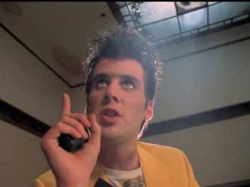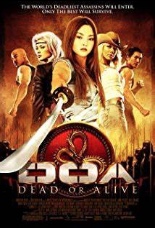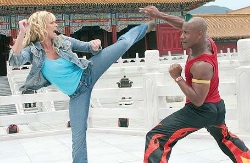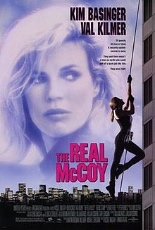
 One of the
One of the great good films to come out of the 1990s action boom, this Russell Mulcahy caper stars Kim Basinger as Karen McCoy, quite possibly the hottest felon ever to walk out of a woman’s prison, complete with makeup and hair did. After a multiyear rap for a botched burglary of an Atlanta bank — complete with high-tech gear that must’ve cost more than she would’ve made from the heist – she’s now looking to reconnect with her son and walk the straight and narrow.
But, of course, because Kim Basinger is so hot, every man she comes across wants to wrap their slimy tentacles around her, especially her grimy parole officer, who I’m pretty sure was in plenty of Ernest P. Worrell flicks. Add in the equally slimy Terence Stamp, as a crime lord clad mostly in a terrible Southern accent, who kidnaps her kid, leaving her with no other option but to return to the robbing life. Along the way, she meets affable J.T. (an affable Val Kilmer), a bumbling driver who seems out of place in this movie, but oh, well, it was the ’90s and we threw caution to the wind and hired Val Kilmer whenever we could.
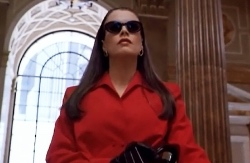 Watching The Real McCoy for the first time in 20 or so years, it’s a bit strange now to watch these Joel Silver, Andrew Vajna, Don Simpson or, in this case, Martin Bregman-produced flicks in the era of #MeToo, because throughout most of the movie, Basinger takes beating after beating from various men and never once fights back — until the very end, of course, when she all of a sudden unleashes kung-fu kicks left and right.
Watching The Real McCoy for the first time in 20 or so years, it’s a bit strange now to watch these Joel Silver, Andrew Vajna, Don Simpson or, in this case, Martin Bregman-produced flicks in the era of #MeToo, because throughout most of the movie, Basinger takes beating after beating from various men and never once fights back — until the very end, of course, when she all of a sudden unleashes kung-fu kicks left and right.
A lot of this probably wouldn’t fly today and you’d have to wonder if Basinger, whose star has waned a bit, would do it all differently today. And while it would be easy to call for a remake, this was quite the bomb at the box office, earning about $6 million in receipts. Maybe it didn’t fly so well back then, either? —Louis Fowler

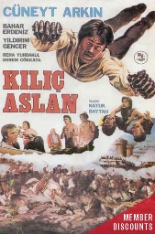
 Cüneyt Arkın, one of the proud futuristic freedom fighters from
Cüneyt Arkın, one of the proud futuristic freedom fighters from 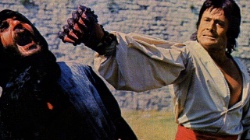
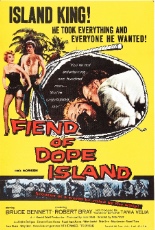
 Somewhere in the Caribbean, psychotic pot farmer and arms dealer Charlie Davis (Bruce Bennett,
Somewhere in the Caribbean, psychotic pot farmer and arms dealer Charlie Davis (Bruce Bennett, 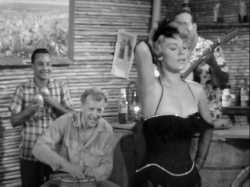

 Not to be confused with
Not to be confused with 